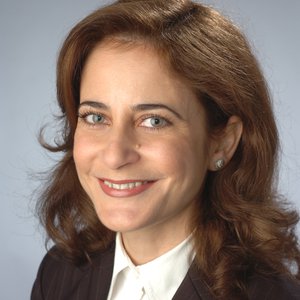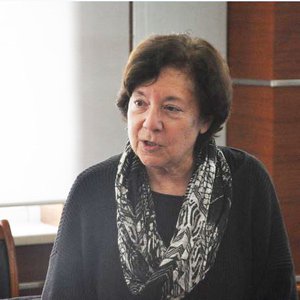B.A. in Linguistic Studies
Why Study Linguistics?
Linguistics is the scientific study of language and is concerned with the following questions (among others): What does knowledge of a language consist in and how is this knowledge acquired and put to use? What are the similarities and differences among languages? How is language represented in the human brain? How does language differ from animal communications systems? How does language function in society? How and why does language change over time? In addition, linguistics is applied in the teaching of languages and in education generally, in computer programming, in advertising, and in many other areas of study and activity in which language plays a central role.
Program Information
The Linguistics Study Program is an interdisciplinary program incorporating not only courses offered within the department of Languages, Literatures, and Linguistics -- prefixed 'LIN' -- but also courses from the following academic units: Anthropology, Child and Family Studies, Cognitive Science, Communications Sciences and Disorders, Communication and Rhetorical Studies, Computer and Information Science, Reading and Language Arts, Information Studies, Philosophy, and Spanish.
The Linguistics Studies Program offers a Major and a Minor at the undergraduate level and a Master of Arts at the graduate level.
Sample Major Requirements
Students must fulfill the Liberal Arts Core Language Skills requirement in one language and successfully complete at least 6 credits in an additional language (other than English) that is structurally significantly different from the language used to fulfill the Liberal Arts Core requirement. In addition, students successfully complete LIN 301 - Introductory Linguistic Analysis, LIN 431 - Phonological Analysis, and LIN 441 - Syntactic Analysis. Major requirements also include the successful completion of at least 18 credits of additional work, of which at least 9 credits are in courses numbered 300 or above. The 18 credits must be in approved linguistic studies courses, chosen from at least three of the groups below.
The 18 credits must be in approved linguistic studies courses, chosen from at least three of the following groups:
Psychology and Biology of Language
- COG 301 - Introduction to Cognitive Science
- CSD 212 - Introduction to Communication Sciences and Disorders
- CSD 315 - Anatomy and Physiology of the Speech and Hearing Mechanisms
- CSD 316 - Introduction to Applied Phonetics
- CSD 345 - Speech Science Fundamentals of Speech Science
- CSD 409 - Cognitive Neuroscience of Speech and Language
- LIN 371 - Dimensions of Bilingualism and Multiculturalism
- LIN 375 Forensic Linguistics
- LIN 392 - Second Language Acquisition
Language in Culture and Society
- LIN 202 - Languages of the World
- LIN 373 - Language Variation and Change
- LIN 374 - Topics in Sociolinguistics
- LIN 381 - Global Communication Through World Englishes
- LIN 472 - Language, Culture, and Society
Logic and Language
- PHI 251 - Logic
- PHI 451 – Logic and Language
- PHI 551 - Mathematical Logic
- PHI 552 - Modal Logic
- PHI 565 - Philosophy of Language
History and Structure of Language
- LIN 202 - Languages of the World
- LIN 251 - English Words
- LIN 305 – Linguistic Structure of English
- LIN 406 – Field Methods in Linguistics
- LIN 411 - Semantics of Human Languages
- LIN 412 - Pragmatics: Meaning and Context
- LIN 426 - Structure of Standard Arabic
- LIN 451 - Morphological Analysis
- LIN 461 - Introduction to Historical Linguistics
- SPA 435 - Spanish Phonetics and Phonology
- SPA 436 - The Structure of Spanish
- SPA 437 - Intro to Spanish Linguistics
Language Pedagogy
- LIN 321 - Introduction to Methodology of Teaching Languages: English/Foreign Language Teaching
- LIN 422 - Advanced Methods of Teaching Languages: English/Foreign Language Teaching
Director

Amanda Brown
Program Faculty

Tej Bhatia
315.443.5374

Amanda Brown

Rania Habib
315.443.8073

Jaklin Kornfilt
315.443.5375

Kenji Oda

